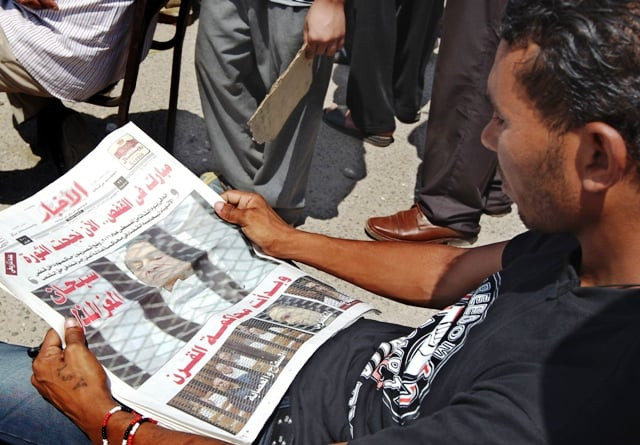Mubarak on trial — finally
The sight of Mubarak in the court inside a cage altered forever his image in the eyes of many Egyptians.

The sight of Mubarak — for decades Egypt’s strongman — in the court inside a cage which held his hospital bed altered forever in the eyes of many Egyptians the image of a man who had for so long ruled their lives. In many ways he had, in his dapper suits and crisp ties, seemed almost invincible. His appearance in so different a situation, covered by a sheet and occasionally raising an arm to shield his face, tells people a completely different story. It may also alter the way dictators are looked at and the trial indeed begins at a crucial time in the region, when the struggle for democratic rights in Syria appears to be moving in to new gear and there is unrest in other parts of the Middle East.
Mubarak, with nine co-defendants, including two of his sons, is charged with the killing of people during protests in January. He has denied the charges. It will be significant to see the way things proceed — given that these are accusations that could, in time, be brought against other leaders in a region where change has come quickly. The trial of Mubarak, the testimonies we hear during it, the defence put up and the verdict that is finally delivered, both in the case of Mubarak himself and his son and ex-heir apparent Gamal, may indeed push this change forward even faster. We are watching history unfold at great speed. Cameras seem to be in fast-forward mode. Certainly, till early this year, most Egyptians would never have believed what they are seeing, or grasp how quickly their political destiny could change as ordinary people brought about the fall of a once mighty dictator who today presents the rather sorry image of a defeated man. Perhaps there is something to be learnt from all of this among the region’s regimes, many of which remain dictatorial.
Published in The Express Tribune, August 5th, 2011.














COMMENTS
Comments are moderated and generally will be posted if they are on-topic and not abusive.
For more information, please see our Comments FAQ